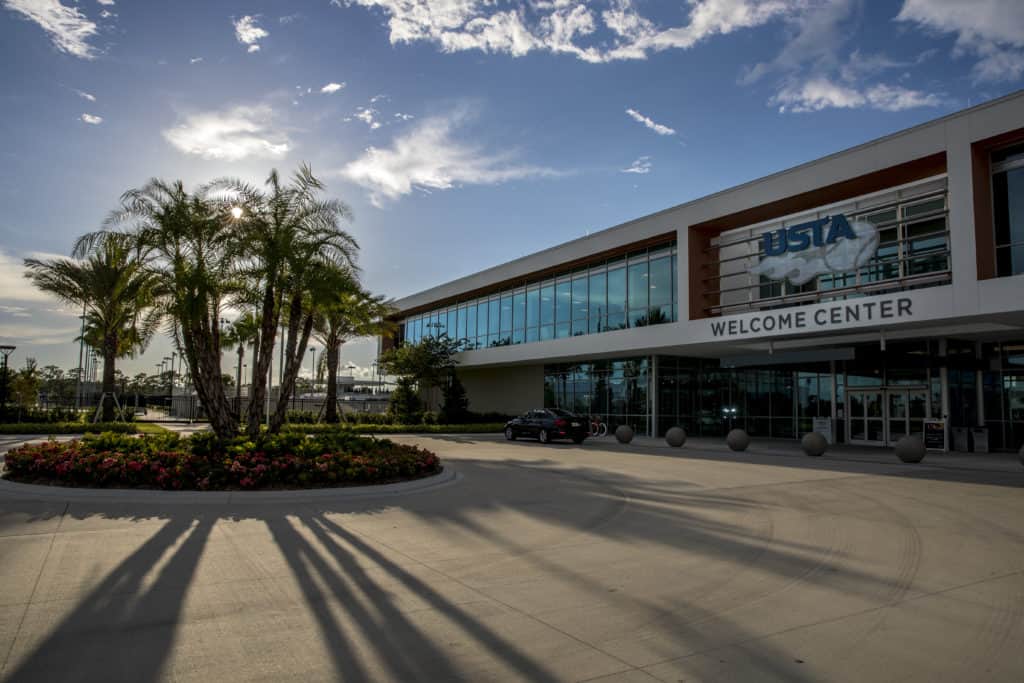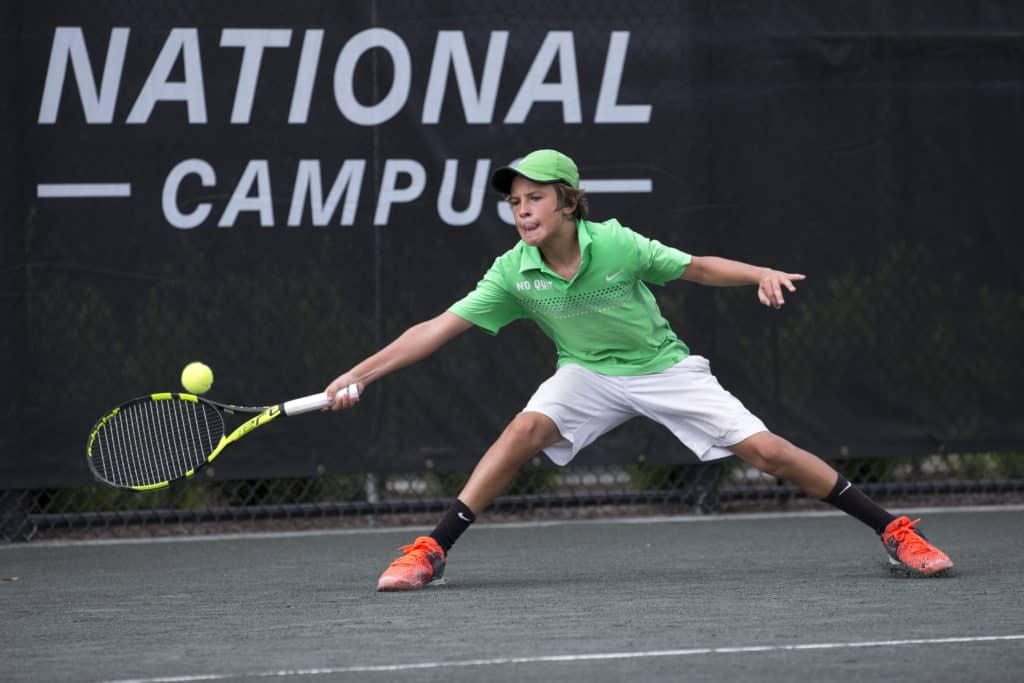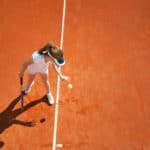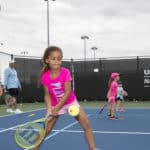 Situated just down the road from the USTA National Campus in the Medical City district sits the Orlando VA Medical Center, the largest such facility in the country. Hundreds of veterans, young and old, who have served in the U.S. military are treated there daily, with a number of them either living on site or in the nearby community. Joanne Wallen, the director of adult individual play and wheelchair tennis for the USTA, and her team, which is based at the USTA National Campus in Lake Nona, saw an opportunity in this proximity. In line with the USTA’s mission of growing the game of tennis, Wallen and her team sought to bring the sport to the many veterans being treated at the nearby VA facility.
Situated just down the road from the USTA National Campus in the Medical City district sits the Orlando VA Medical Center, the largest such facility in the country. Hundreds of veterans, young and old, who have served in the U.S. military are treated there daily, with a number of them either living on site or in the nearby community. Joanne Wallen, the director of adult individual play and wheelchair tennis for the USTA, and her team, which is based at the USTA National Campus in Lake Nona, saw an opportunity in this proximity. In line with the USTA’s mission of growing the game of tennis, Wallen and her team sought to bring the sport to the many veterans being treated at the nearby VA facility.
A partnership was formed, and since April, the USTA National Campus has hosted a clinic every Monday night, open to any and all veterans. What started as a six-week pilot program quickly turned into a permanent fixture at the National Campus. Feedback was immediate and overwhelmingly positive. The program is led by Wallen and the USTA’s wheelchair staff, including coaches Jason Harnett and Jason Allen, as well as many of the USTA staff who have pitched in after seeing the effects the casual nights of tennis have had on local veterans.
The classes range from about 10 to 30 participants on any given Monday, with veterans as young as 22 and one as old as his mid-70s. Wallen estimates that more than 100 veterans have taken part in at least one session, with a number of regulars returning as often as possible. “We saw an opportunity to make an impact with such a special group of people in our community,” said Wallen. “Each and every week provides an example of how tennis is helping these individuals heal.”
Tennis has provided the veterans with a unique rehabilitation method, both physical and mental. Jon Atkins, a retired Marine and one of the first regular participants of the clinic, suffered from a severe case of post-traumatic stress syndrome that forced him into isolation before he gave tennis a shot. Other veterans have shared similar stories with Wallen talking about how tennis has had a profound impact on their lives.
Atkins, along with fellow veterans Marc Spittler and Henry Pruitt, traveled to the US Open in September to take part in the US Open’s Military Appreciation Day, getting an opportunity to hit in Arthur Ashe Stadium and even receiving a shoutout from American Coco Vandeweghe during her on-court interview following her fourth-round victory over Lucie Safarova.
In the same spirit, the USTA National Campus will be holding a special clinic on Monday, Nov. 13, in honor of Veterans Day. The USTA is encouraging all local veterans and their families to come out for a night of tennis, followed by food, as its way of showing appreciation for their service. Giving back has been a theme of the fall season at the USTA National Campus. In September, the USTA National Campus hosted more than 150 second graders from Eagle Creek Elementary. The Net Generation event was designed to encourage healthy and active lifestyles and in recognition of Childhood Obesity Awareness Month. The visit began with an educational seminar on fitness and nutrition that was led by USTA staff and Dr. Robert Karch, a pediatrician at Nemours Hospital. They also were joined by Orlando Magic ambassador and former player Bo Outlaw, who spoke to the kids about the benefits of staying active.
Following the seminar, the group participated in an on-court clinic led by USTA National Campus teaching professionals. Joining the kids during the clinic were rising young American tennis players Tommy Paul and Kayla Day, as well as Outlaw and Orlando Magic mascot STUFF. “This event was a perfect example of what Net Generation is all about,” said USTA General Manager of Community Tennis and Youth Tennis Craig Morris. “To introduce more than 150 kids to the sport of tennis in a meaningful way is exactly the type of lasting impact we’re looking to make with Net Generation throughout the country.”
The event took place on USTA’s Nemours Family Zone, which features smaller courts designed for youth tennis, making it easier for kids and families to get into the game. These efforts are part of Net Generation, USTA’s movement to inspire the next generation of tennis players and encouraging healthy lifestyles.


